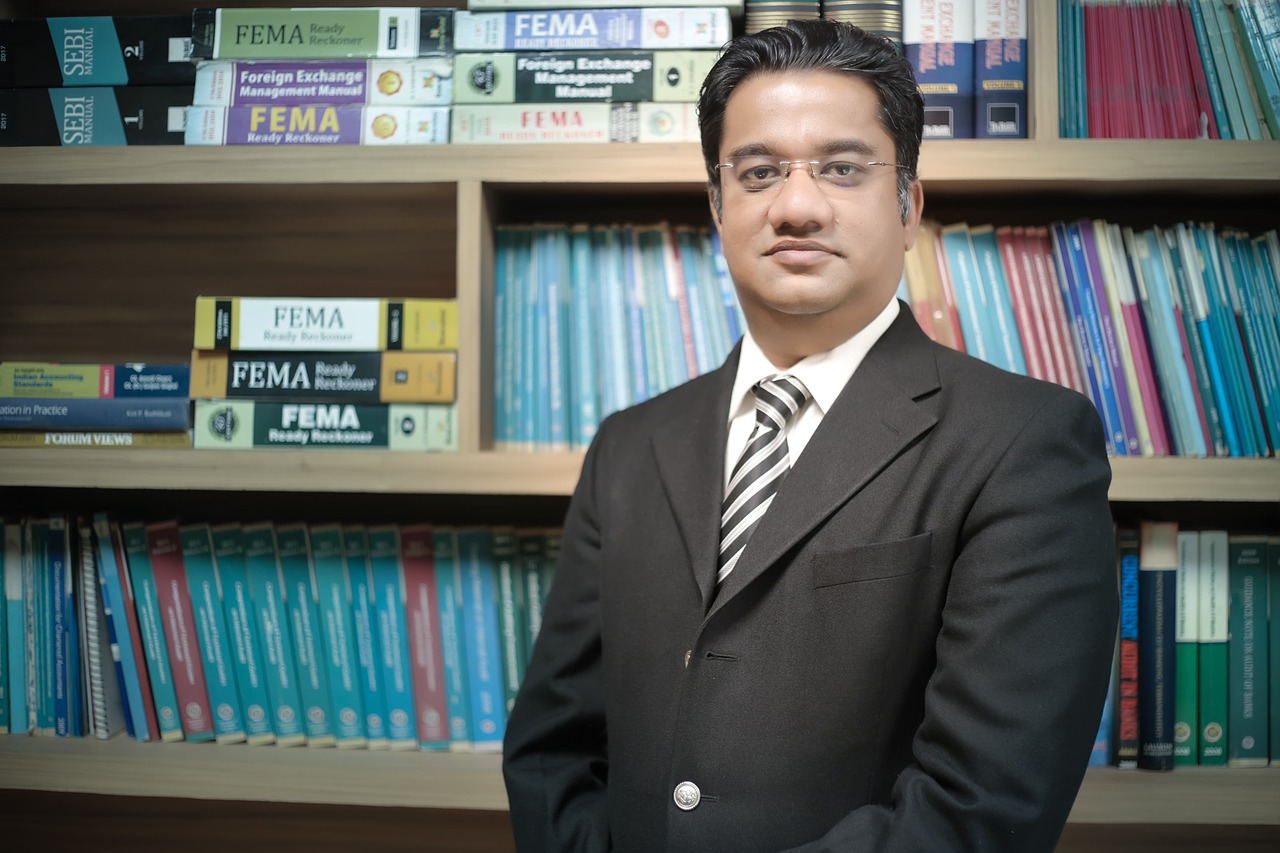Can A Science Student Do Chartered Accountancy?

The traditional lines separating academic specialties are becoming more hazy in today’s dynamic employment market, giving people more options to follow a variety of career routes. The suitability of science education for the profession of chartered accounting (CA) is one such fascinating subject. A career in accounting (CA) has historically been associated with graduates of commerce schools because of its strong emphasis on accounting concepts, financial management, and taxation. But can science students effectively navigate the CA landscape as companies change and the need for individuals with diverse abilities increases?

Introduction
It is important to examine the fundamentals of chartered accountancy in order to respond to this question. The highly regarded and internationally recognized CA credential gives holders the know-how to successfully negotiate challenging financial environments and provides a range of services from taxation and auditing to financial advising. Despite being historically linked to business, the field calls for a combination of analytical thinking, problem-solving skills, and a strong ethical framework—qualities that are not limited to any one academic field.
This first inquiry lays the groundwork for a more thorough examination of how well science education aligns with the standards and needs of the chartered accountancy profession. Through an analysis of the abilities, information, and career paths accessible to scientific majors, we hope to identify the viability and possible paths for science enthusiasts to start fulfilling careers in the field of chartered accounting.
Read also – Are Education Loans Worth It? Exploring the Pros and Cons

Understanding Chartered Accountancy
Prior to discussing whether scientific students can pursue CA, it is important to clarify what CA comprises. A prominent career in financial management, auditing, taxation, and advisory services is chartered accounting. It calls for a solid grasp of financial concepts, analytical abilities, and a great affinity for numbers.
Let’s delve deeper into the various aspects of chartered accountancy:
Financial Management:
Managing a company’s or individual’s finances requires the expertise of chartered accountants (CAs). In order to do this, financial data analysis, budget preparation, financial strategy development, and regulatory and accounting standard compliance must all be ensured. Informed decision-making is aided by CAs in helping clients reach their objectives and maximize their financial performance.

Auditing:
One of the main responsibilities of chartered accountancy is auditing, which includes looking over and confirming financial accounts and records to make sure they are accurate, dependable, and compliant with legal and regulatory requirements. For their clients, CAs do audits to evaluate their financial well-being, pinpoint risks, find fraud or mistakes, and offer suggestions for development. For the financial reporting process to continue to be transparent, accountable, and trusted, auditing is necessary.
Taxes:
Chartered accountants are tax experts who counsel customers on a range of tax issues in an effort to reduce liabilities and optimize advantages. They assist people and companies in navigating the complex tax code, preparing tax returns, maximizing tax benefits, and guaranteeing that tax laws are followed. In order to provide their customers accurate and timely advise, CPAs stay up to date on changes in tax laws and regulations.
Consulting Services:
To assist clients in meeting their financial goals and reducing risks, CPAs provide a variety of consulting services. Financial planning, investment guidance, corporate restructuring, risk management, mergers and acquisitions, and forensic accounting are all included in this. Using their knowledge and analytical abilities, CAs offer strategic recommendations and solutions catered to the particular requirements of each customer.
Read also – Foods that are allowed and not allowed on flights

Professional Standards and Ethics:
In their practice, chartered accountants are bound by stringent professional standards and ethical guidelines. They pledge to uphold professionalism, neutrality, secrecy, and integrity. Professional accounting organizations like the American Institute of Certified Public Accountants (AICPA), the Institute of Chartered Accountants of India (ICAI), and the Institute of Chartered Accountants in England and Wales (ICAEW) have established codes of conduct and ethical guidelines that CAs must abide by.
Skillset Compatibility:
Students studying science have a wide range of abilities that are very important to chartered accountancy. In the fields of accounting and finance, their critical thinking, problem-solving skills, and attention to detail from coursework in physics, chemistry, and mathematics can be quite beneficial. Furthermore, the demanding academic preparation in scientific fields cultivates self-control, fortitude, and the capacity to understand difficult ideas—all of which are necessary for success in California.
Analytical Thinking:
Science students are taught to approach issues methodically, dissect them into manageable chunks, and conduct critical analysis on each one. This analytical approach is very applicable to chartered accountancy, as practitioners must be able to analyze financial data, spot trends and patterns, and derive actionable conclusions. Students studying science are well-suited to succeed in assignments like financial analysis, risk assessment, and performance evaluation because they can apply logical thinking and quantitative analysis.

Problem-solving abilities :
The development of problem-solving abilities is emphasized in science education since students are frequently required to solve complicated puzzles and carry out experiments in order to evaluate theories. This ability to solve problems is very useful in the field of chartered accountancy, where experts frequently have to reconcile disparities in financial records, figure out tax problems, and come up with plans to maximize financial performance. It is possible to use science students’ inventive, creative, and persistent problem-solving skills to help them understand the complexities of accounting and finance.
Attention to Detail:
Because accuracy and precision are crucial in scientific research and experimentation, science students are used to paying great attention to detail. This meticulousness carries over into chartered accountancy, where specialists have to carefully go over financial records, look for mistakes or inconsistencies, and make sure all regulations are satisfied. The capacity of science students to identify anomalies, inconsistencies, and discrepancies can contribute to the preservation of the accuracy and dependability of financial data, reducing risks and defending stakeholders’ interests.
Discipline and Resilience:
Students studying science are taught to be disciplined and resilient because they must follow strict study plans, fulfill deadlines, and persevere in the face of difficulties. These attributes are necessary for success in chartered accountancy, as practitioners frequently handle tight deadlines, work under pressure, and negotiate intricate regulatory environments. Science students are well-suited to succeed in the fast-paced and dynamic world of accounting and finance because of their capacity to remain resilient, organized, and focused under pressure.
Educational Requirements:
It’s not strictly necessary, but having a background in commerce can be a great starting point for CA. Candidates from a wide range of academic disciplines, including science, are accepted into many chartered accountancy programs. However, in order to meet specific prerequisites in accounting and finance, scientific students might need to take additional courses or enroll in bridging programs.

Foundational Knowledge in Accounting and Finance:
Science students might not have had as much exposure to accounting and finance as those with a background in commerce, which offers a strong foundation in these areas. Because of this, science majors who want to become chartered accountants might need to take extra courses to gain the fundamental knowledge and abilities in corporate finance, taxation, auditing, financial reporting, and accounting concepts. This could entail signing up for foundational accounting classes or taking part in bridge programs provided by academic institutions or professional accounting associations.
Preparatory Courses:
For candidates with backgrounds outside of commerce, several chartered accountancy programs provide preparatory courses or modules. These courses are intended to fill up any knowledge gaps by covering foundational accounting and finance principles. Topics covered in preparatory courses may include business law, mathematical methods, financial accounting, managerial accounting, and economics. After completing these courses, science students will have the academic background needed to effectively pursue a career in chartered accounting.
Professional Qualification Exams:
To become a chartered accountant, candidates must fulfill educational requirements as well as pass a series of exams given by professional accounting organizations like the American Institute of Certified Public Accountants (AICPA), the Institute of Chartered Accountants of India (ICAI), and the Institute of Chartered Accountants in England and Wales (ICAEW). Topics including financial accounting, auditing, taxation, law, ethics, and business management are often covered in these tests. Science students, with their lack of experience in commerce, might need to invest more time and energy in getting ready for these tests.
Practical Experience:
Candidates for chartered accountancy programs are frequently required to fulfill a term of practical training or work experience under the supervision of a competent chartered accountant, in addition to meeting academic requirements and passing exams. Students have firsthand exposure to actual accounting procedures through this experience, which also aids in the development of their practical skills and competences. To meet this criterion, science students might have to actively look for internship or work placement opportunities in corporate finance departments, financial institutions, or accounting companies.
Read also –Why did it take humans so long to discover electricity and technology?

Continuing Professional Development:
In order to preserve their professional competence and remain current with changes in accounting standards, laws, and industry trends, chartered accountants must participate in continuing professional development (CPD). Students majoring in science who want to become chartered accountants must make a commitment to lifelong study and professional development in order to guarantee that their knowledge and abilities will be up to date and useful throughout their careers. This could entail going to conferences, seminars, workshops, or getting further certifications or credentials in certain fields of finance or accounting.
Challenges and Opportunities:
There may be certain difficulties while switching from science to chartered accountancy, such as getting used to a different learning and work environment. But it also creates a whole new world of possibilities. A distinct viewpoint is brought to the table by science students who pursue CA, as they combine scientific rigor with financial savvy. They can choose from a variety of job options, such as forensic accounting, financial analysis, consultancy, and entrepreneurship.
Challenges:
Getting Used to a New Academic Environment:
Science majors making the switch to chartered accountancy may find it difficult to get used to a new academic program and way of learning. When compared to science subjects, accounting and finance education frequently uses a different set of concepts, language, and methodology. It could take extra time and effort for science students to become knowledgeable about financial reporting requirements, quantitative analytical methods, and accounting principles.

Getting Skill and Knowledge in Finance:
A solid foundation in accounting, finance, taxation, and allied fields is necessary to become a chartered accountant. Science students might not have had much experience with these topics before, so they might need to do more reading or study on their own to fill in any knowledge gaps. Gaining expertise in financial analysis, comprehending regulatory systems, and mastering financial ideas can be difficult.
Professional Qualification examinations:
For science students, passing professional qualification examinations like the Certified Public Accountant (CPA) or Chartered Accountant (CA) test might be a difficult undertaking. These tests are thorough and demanding, covering a broad range of subjects in company law, taxation, auditing, and accounting. For these tests, science students might need to invest a lot of time and energy, particularly if they haven’t previously studied accounting and financial subjects.
Opportunities
Unique viewpoint and skill set:
By fusing scientific rigor with analytical reasoning and problem-solving abilities, science students offer a distinctive viewpoint to the field of chartered accountancy. When it comes to financial analysis, risk assessment, and decision-making, their expertise in mathematics, data analysis, and critical thinking can be quite helpful. Science students can contribute new perspectives to the accounting and finance fields as well as creative solutions to challenging financial issues.
Various Career pathways:
There are many different career pathways and chances for professional growth and success in chartered accounting. Science majors interested in a career in finance can investigate a variety of positions in corporate finance, forensic accounting, financial analysis, management consulting, and internal auditing. They might also use their knowledge in science to focus on specialized fields like technology consulting, healthcare finance, or environmental accounting.

Innovation and Entrepreneurship:
Students studying science with a foundation in chartered accountancy can use their knowledge and abilities to pursue creative company ideas or entrepreneurial endeavors. They could use their knowledge of risk assessment, business strategy, and finance management to start new companies, create new goods or services, or offer advisory services to developing markets. A strong foundation in chartered accountancy might be invaluable for scientific students looking to make their own way in the corporate sector.
Conclusion:
In conclusion, scientific students can absolutely study chartered accountancy, even though it might not be the most common path. They can succeed in this exciting and fulfilling sector if they have the correct attitude, are committed, and are eager to learn new abilities. In the end, the most important things are enthusiasm, dedication, and a desire to have a significant impact—qualities that cut between academic fields. Thus, if you’re a scientific student thinking about going into chartered accountancy, know that the options are virtually limitless and that the door is open.
Accepting Diversity:
A range of viewpoints and experiences are beneficial to the field of chartered accountancy. Science students contribute a distinct set of abilities and experiences to the field, elevating it with their scientific rigor, analytical thinking, and problem-solving skills. Accepting diversity encourages inclusivity, innovation, and enriches the accounting and finance sector.
Ongoing Education and Development:
Becoming a chartered accountant is a path of ongoing education and development rather than merely receiving a credential. Students who choose to pursue this career route in science need to be ready to grow as professionals, learn new things, and hone their craft. Because the financial sector is dynamic, professionals must keep up with new developments in technology, legislation, and trends in order to stay relevant and competitive.

Transferable Skills:
A science education imparts highly transferable skills and competencies that are suitable to a wide range of professions, including chartered accountancy. Strong analytical abilities, meticulous attention to detail, and critical thinking are qualities that employers in accounting and finance value in science students. Science students can succeed as chartered accountants by utilizing their transferable talents and fusing them with specific knowledge in finance and accounting.
Career Mobility and Flexibility:
In terms of professional options and regional mobility, chartered accounting provides freedom and mobility. Graduates of science programs who wish to become chartered accountants can choose to work abroad, change industries, or follow various career paths. Professionals are able to investigate overseas employment options due to the worldwide recognition of chartered accountancy
Making a Difference:
The goal of chartered accountancy is to positively influence businesses, communities, and society at large. It is not only about numbers. Students majoring in science who decide to become chartered accountants can support ethical standards in financial reporting and management, help organizations be financially stable, and offer insightful analysis to decision-makers. Informed decision-making and coaching clients toward financial success are two key ways that chartered accountants contribute to economic growth and prosperity.






really informative blogs
best content